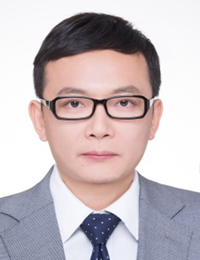ZOU Qiang

ZOU Qiang
E-mail: Qzou1984@126.com
Tel: 021-64666150
Laboratory of Cancer Immunometabolism
Research Field: Cancer Immunometabolism
Personal Introduction
Dr. Qiang Zou received his Ph.D. degree in Microbiology from China Agricultural University in 2012. From 2012 to 2016, he was a postdoctoral fellow at the MD Anderson Cancer Center, USA. In March 2016, he joined the Shanghai Institute of Immunology, School of Medicine, Shanghai Jiao Tong University. The “Cancer Immunometabolism” laboratory has been established to explore the metabolic regulation mechanism of tumor immune response and tolerance, and a series of important academic achievements have been made. Numbers of papers have been published in academic journals such as Cell Metabolism, Molecular Cell, Journal of Clinical Investigation, Journal of Experimental Medicine and Nature Communications. In recent years, he has presided over a quantity of projects containing: Overseas High-level Talent Introduction scheme Youth programme (Organization Department of the CPC Central Committee, 2016), Key project of National Natural Science Foundation of China(2020), National Natural Science Funds for Excellent Young Scholar(2020), General project of National Natural Science Foundation of China(2017, 2019), and participated in two National Key Research and Development Program of China(2020, 2021). In 2016, he was selected for the “Early Star Program” of Shanghai Science and Technology Commission; in 2018, he was selected for the “Excellent Youth Program” of Shanghai Health and Family Planning System; in 2018, he was awarded the outstanding Young Scholar Award of the 15th Yangtze River Delta Science and Technology Forum; and in 2019, he was awarded the “Young Outstanding Award” of Shanghai Society of Biochemistry and Molecular Biology. He is also the reviewers for Cell Research, Journal of Cell Biology, Communications Biology, FASEB Journal, Protein & Cell, Eur J Immunol, etc.
Office:
Deputy Dean of Shanghai Jiao Tong University College of Basic Medicine Sciences,
Deputy Director of State Key Laboratory of Oncogenes and Related Genes,
Council member of Free Radical Biology and Free Radical Medicine Branch in Biophysical Society of China,
Youth member of Tumor Microenvironment Committee of China Anti-Cancer Association.
Scientific Research Projects
2021YFA1301400, Adaptive immunity basis of individual differences in antiviral immunity. Panoramic study of immune response to respiratory virus infection, National Key Research and Development Program of China, 2021/12~2026/11, 1.47 million yuan, Project participant.
2020YFA0803600, Regulation mechanism of metabolic plasticity and memory in tissues and organs and its physiological and pathological significance, National Key Research and Development Program of China, 2020/12~2025/11, 1.45 million yuan, Project participant.
81930040, Functions of T cell glucose metabolism in colorectal carcinogenesis, Key Program of National Natural Science Foundation of China, 2020/01~2024/12, 3.00 million yuan, Project director.
31922025, Glucose metabolism and antitumor immunity. National Natural Science Funds for Excellent Young Scholar, 2020/01~2022/12, 1.20 million yuan, Project director.
31870884,Molecular mechanisms regulating antitumor CD8+ T cell function by E3 ubiquitin-protein ligase ZFP91, General Program of National Natural Science Foundation of China, 2019/01~2022/12, 0.60 million yuan, Project director.
Publications
Wu Z, Huang H, Han Q, Hu Z, Teng XL, Ding R, Ye Y, Yu X*, Zhao R*, Wang Z*, Zou Q*. SENP7 senses oxidative stress to sustain metabolic fitness and antitumor functions of CD8+ T cells. Journal of Clinical Investigation. 2022 Apr 1;132(7):e155224.
Hu Z#, Teng XL#, Zhang T, Yu X, Ding R, Yi J, Deng L*, Wang Z*, Zou Q*. SENP3 senses oxidative stress to facilitate STING-dependent dendritic cell antitumor function. Molecular Cell. 2021, Mar 4;81(5):940-952.e5.
Wang A#, Ding L#, Wu Z, Ding R, Teng X-L, Wang F, Hu Z, Chen L*, Yu X*, Zou Q*. ZFP91 is required for the maintenance of regulatory T cell homeostasis and function. Journal of Experimental Medicine, 2021, 218(2):e20201217.
Wang F, Zhang Y, Yu X, Teng XL, Ding R, Hu Z, Wang A, Wang Z*, Ye Y*, Zou Q*. ZFP91 disturbs metabolic fitness and antitumor activity of tumor-infiltrating T cells. Journal of Clinical Investigation. 2021, Oct 1;131(19):e144318.
Hu Z#, Qu G#, Yu X#, Jiang H, Teng X-L, Ding L, Hu Q, Guo X, Zhou Y, Wang F, Li H-B, Chen L, Jiang J, Su B*, Liu J*, Zou Q*. Acylglycerol Kinase Maintains Metabolic State and Immune Responses of CD8+ T Cells. Cell Metabolism, 2019, 30(2):290-302.e5.
Yu X#, Lao Y#, Teng X-L#, Li S, Zhou Y, Wang F, Guo X, Deng S, Chang Y, Wu X, Liu Z, Chen L, Lu L, Cheng J, Li B, Su B, Jiang J, Li H-B*, Huang C*, Yi J*, Zou Q* . SENP3 maintains the stability and function of regulatory T cells via BACH2 deSUMOylation. Nature Communications, 2018, 9:3157.
Yu X#, Teng X-L#, Wang F#, Zheng Y#, Qu G, Zhou Y, Hu Z, Wu Z, Chang Y, Chen L, Li H-B, Su B, Lu L*, Liu Z*, Sun S-C*, Zou Q* . Metabolic control of regulatory T cell stability and function by TRAF3IP3 at the lysosome. Journal of Experimental Medicine, 2018, 215(9): 2463-2476.
Xiao Y#, Zou Q# , Xie X#, Liu T, Li H, Jie Z, Jin J, Hu H, Manyam G, Zhang L, Cheng X, Wang H, Marie I, Levy D, Watowich S, and Sun SC. The kinase TBK1 functions in dendritic cells to regulate T cell homeostasis, autoimmunity, and antitumor immunity. Journal of Experimental Medicine, 2017, 214(5): 1493-1507.




